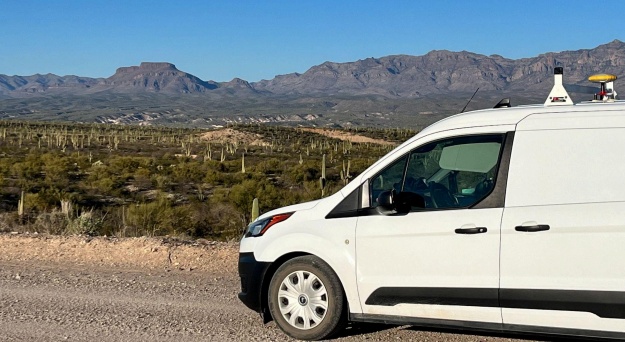
Rio Tinto Exploration $RIO (-0,51 %) has teamed up with deep tech startup Atomionics to test a quantum gravity sensor in mineral exploration for the first time.
According to Atomionics, the wearable sensor (called Gravio), when installed on a moving vehicle, can image underground resources like a "virtual X-ray," allowing for ten times faster and more accurate exploration - without having to send anything underground. The device miniaturizes a technology normally found only in nuclear physics labs into a portable, basketball-sized sensor, it added.
Field trials in Arizona and Australia
A recent field test in Arizona demonstrated the capabilities of the Gravio quantum sensor in a harsh environment. Mounted on a moving vehicle, the sensor captured gravity data, enabling higher measurement density.
Previously, Atomionics had conducted another commercial survey expedition for Bridgeport Energy in Western Queensland, Australia. The survey covered a remote area of approximately 200 square kilometers.
How does it work?
Inside Gravio, the atoms are cooled to extremely low temperatures and then released to crash. At such temperatures, atoms exhibit wave-like behavior instead of behaving solely as particles. This wave-like behavior enables the high-precision measurements that make the experiment possible.
The sensor then measures the falling speed of the atoms, which is influenced by the gravitational force of the underground formations. Gravio detects the smallest fluctuations in this gravitational force and creates detailed 2D and 3D maps. These maps reveal anomalies that are then analyzed to identify underground resources.
"This technology could enable new approaches to mineral exploration, especially in difficult environments. For example, it could allow large areas to be surveyed at higher resolution, providing greater insight into resource definition," said James Alderman, Technology Partner at Rio Tinto Exploration.

